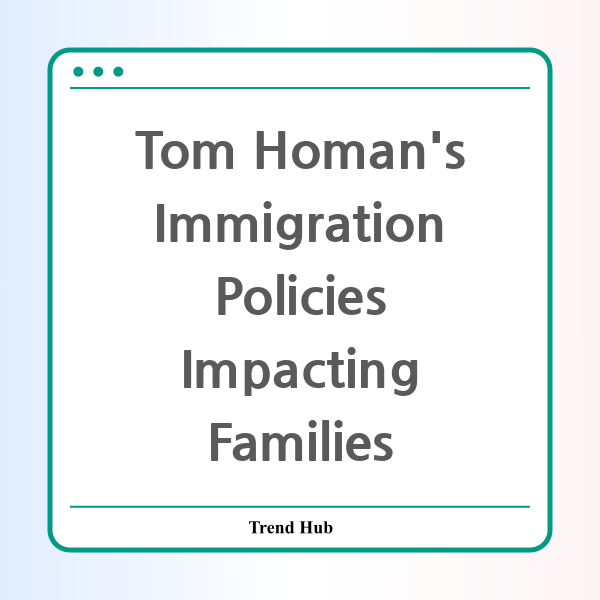* This website participates in the Amazon Affiliate Program and earns from qualifying purchases.

What happens when a law meant to enforce immigration results in family separation? Recent events have put a spotlight on the harsh realities of U.S. immigration policies under Tom Homan's leadership. The tragic deportation of three U.S. citizen children, including a 4-year-old battling cancer, alongside their undocumented mothers raises urgent questions about due process and the human cost of enforcement actions.
In a shocking incident, three American children were deported to Honduras with their mothers after attending routine check-ins with U.S. Immigration and Customs Enforcement (ICE). Their story is not just about immigration enforcement; it is a poignant reminder of the consequences of governmental policies on families and children.
During these check-ins, the mothers were detained, revealing a troubling trend where immigrants are subject to immediate deportation without adequate legal representation or a fair hearing. According to advocates, this instance exemplifies an alarming erosion of due process under current immigration laws.
In one particularly heart-wrenching case, the mother of a 2-year-old girl, who was taken into custody while attending an ICE check-in, faced the dire prospect of being separated from her child due to a lack of citizenship status. The implications of such actions extend beyond legal technicalities; they involve the emotional trauma inflicted on families who are genuinely desiring to comply with immigration laws.
"We are seeing in real time due process eroded," stated a lawyer involved in the case, underscoring how these families are often trapped in a complex legal labyrinth. The 4-year-old boy with cancer is a stark reminder that policies designed to control immigration can adversely affect innocent lives, raising ethical questions about their implementation.
At the heart of the debate is the question of how authorities are empowered to act against individuals who have been compliant with regulations, such as attending mandatory check-ins. These parents were led to believe they were engaging with the system correctly, only to face sudden deportation—a situation that leaves advocates and legal experts deeply concerned about the implications for other families.
Furthermore, the government claims that one mother expressed a desire to take her child to Honduras based on a handwritten note. Critics of the administration have rejected this assertion, arguing that the families were coerced into this situation, highlighting a significant breakdown in the immigration process.
The ongoing crisis raises several pressing questions: Are current immigration enforcement practices consistent with American values of fairness and justice? How can we protect the rights of U.S. citizen children who find themselves caught in this web of immigration policy?
These recent deportations are a stark reminder that immigration enforcement can have lethal and long-lasting effects on families who simply wish to comply with the law. Advocates argue that every family deserves the chance to be together, especially under dire circumstances such as serious health issues affecting children.
As the conversation around immigration heats up, it is crucial to remain vigilant and advocate for compassionate policies that don’t compromise the safety and well-being of families. The plight of these children and their mothers is not just a legal issue; it is a moral one that challenges our society to reflect on how we treat the most vulnerable among us.
In light of these events, it is essential for policymakers to consider the human element in immigration debates and to work toward solutions that prioritize family unity and protect the rights of all individuals, regardless of their immigration status.
* This website participates in the Amazon Affiliate Program and earns from qualifying purchases.